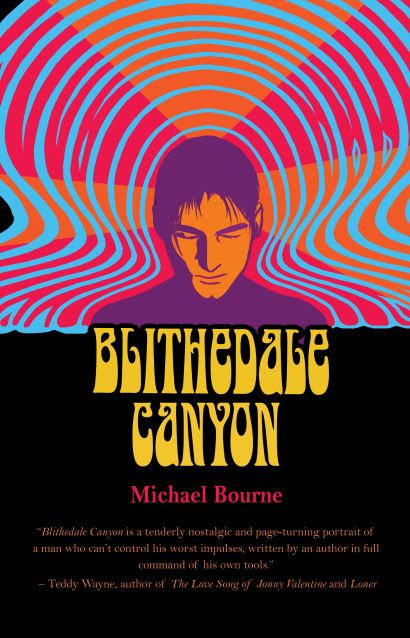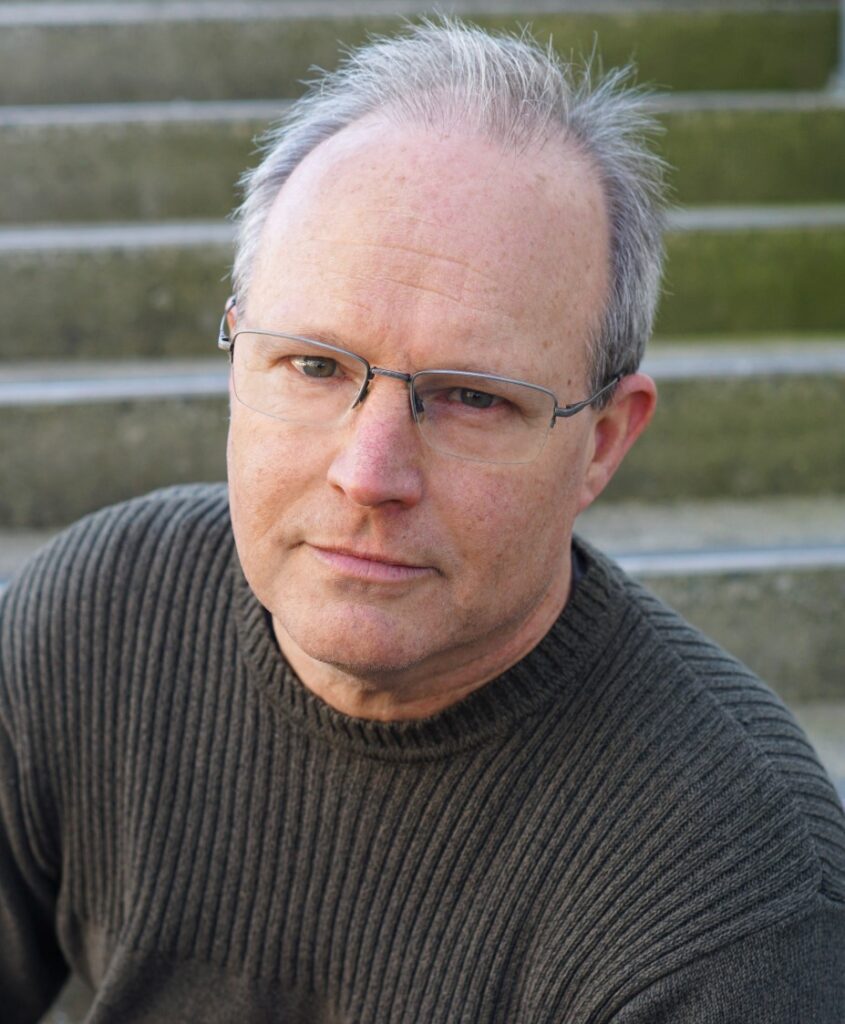Editor’s Note: This exchange is part of a series of brief interviews with emerging writers of recent or forthcoming books. If you enjoyed it, please visit other interviews in the I’ve Got Questions feature.
· What’s the title of your book? Fiction? Nonfiction? Poetry? Who is the publisher and what’s the publication date?
My novel is called Blithedale Canyon. It’s a work of literary fiction to be published June 30 by Regal House Publishing.
· In a couple of sentences, what’s the book about?
Blithedale Canyon is a story of love and other addictions set in a sun-kissed Northern California town rapidly shifting from hippie haven to moneyed paradise. The novel’s narrator, Trent Wolfer, has blown it in every way possible over and over and over. Fresh out of rehab, he moves back to live with his mother and her wealthy second husband, but soon he’s blowing it again, cutting out on his breaks at his dead-end job at a fast food joint to sneak airplane bottles of vodka and gin. Then one day he looks up from his register to see his closest friend from high school, now a radiant blonde single mother of two.
· What’s the book’s genre (for fiction and nonfiction) or primary style (for poetry)?
The book is literary fiction, but I’m hoping to sidestep the genre’s reputation for self-serious dourness. Blithedale Canyon is funny. Trent is funny. The novel takes on some serious subjects – addiction, criminal behavior, dysfunctional families, etc. – but I wanted readers to have a good time with it.
· What’s the nicest thing anyone has said about the book so far?
I got a very nice pre-publication review in Publishers Weekly, which likened Trent to “an older version of Holden Caulfield,” but the response that has gotten me the most excited so far came from Edan Lepucki, bestselling author of California and Woman No. 17. Here’s what she said:
“With this riveting novel, Michael Bourne gives us a vivid portrait of Northern California at the turn of the 21st century: the complicated signifiers of wealth, the crushing inevitability of gentrification, and that old California, part myth, part memory. A story of love, addiction, regret, and hope. I couldn’t put it down.”
I couldn’t write a better description of the book’s aims and concerns, and I’ve tried.
· What book or books is yours comparable to or a cross between? [Is your book like Moby Dick or maybe it’s more like Frankenstein meets Peter Pan?]
I never know how to answer this question. There’s that comparison to Catcher in the Rye, which makes some sense, though I never thought of it until I saw the Publishers Weekly review. So maybe “a Catcher in the Rye for the 21st century”? That has a nice ring to it, doesn’t it?
· Why this book? Why now?
We’re flooded with addiction narratives these days, but most strike me as fundamentally false. They either glamorize addiction, turning drug use into an act of rebellion, which is just ridiculous, or they sentimentalize it, playing up the schmaltzy scenes of redemption after the addict decides to quit. I wanted to go against all that, writing a book with humor and attitude that shows the messy reality of getting clean. As anyone who’s ever been an addict – or who’s had to live with one – can tell you, the decision to quit is the beginning, not the end, of the story. I wanted to write about a guy who wants to stop, who knows he needs to stop, but can’t, and I wanted to put readers inside that guy’s mind, so those who have never experienced it can understand how the addict’s mind works.
· Other than writing this book, what’s the best job you’ve ever had?
I was a newspaper reporter in small towns in California and Colorado in my twenties. I only did it for a few years before I went back to school and became a teacher, but man, I loved those jobs. You spend all day learning about things you know nothing about and then you go back to the office and write about them like you’re an expert – on deadline. Putting out a newspaper is a high wire act every day. Those jobs wore me out, but I was never, ever bored.
· What do you want readers to take away from the book?
As I say, mostly I want readers to have fun and sink into a good story. I avoid “message novels” like the plague and would never want to foist one on readers. But if there’s a message to Blithedale Canyon it’s that you have to separate the addict from the addiction. Trent Wolfer is a good guy who is also an addict who does bad things. You can’t excuse away the bad behavior – and the book is very clear about the consequences for his family and loved ones – but I do think you have to grant addicts their humanity apart from the substances they abuse.
· What food and/or music do you associate with the book?
Midway through the book, Trent is flipping through the dial on his car radio and hits Bruce Springsteen’s “Born in the U.S.A.” After that, he listens to the Springsteen album of the same name obsessively and it becomes a kind of soundtrack for the book. For Trent, a child of the 1980s, listening to Springsteen is like stepping into a warm bath – it soothes and calms him. But as I relistened to the album myself, I kept being blown away by what a great writer Springsteen is. “Born in the U.S.A.” got co-opted by the flag-waving America Firsters, but it’s an angry anthem about working class helplessness. And “I’m on Fire,” another song on that album – has there ever been a more haunting tune about obsessive love?
· What book(s) are you reading currently?
I’m reading Philipp Meyer’s first novel American Rust. His second novel The Son is one of my favorite books. American Rust doesn’t reach that level of brilliance, but it has a big, diverse set of characters, all of which are fully realized and fascinating to follow. I also listen to audiobooks, and right now I’m listening to Tina Brown’s The Palace Papers, about the British royal family. It’s a big, silly, sudsy gossipfest, just what I was hoping for.
Learn more about Michael on his website.
Follow him on Twitter and Goodreads.
Buy the book from the publisher (Regal House Publishing), Amazon, or Bookshop.org.


